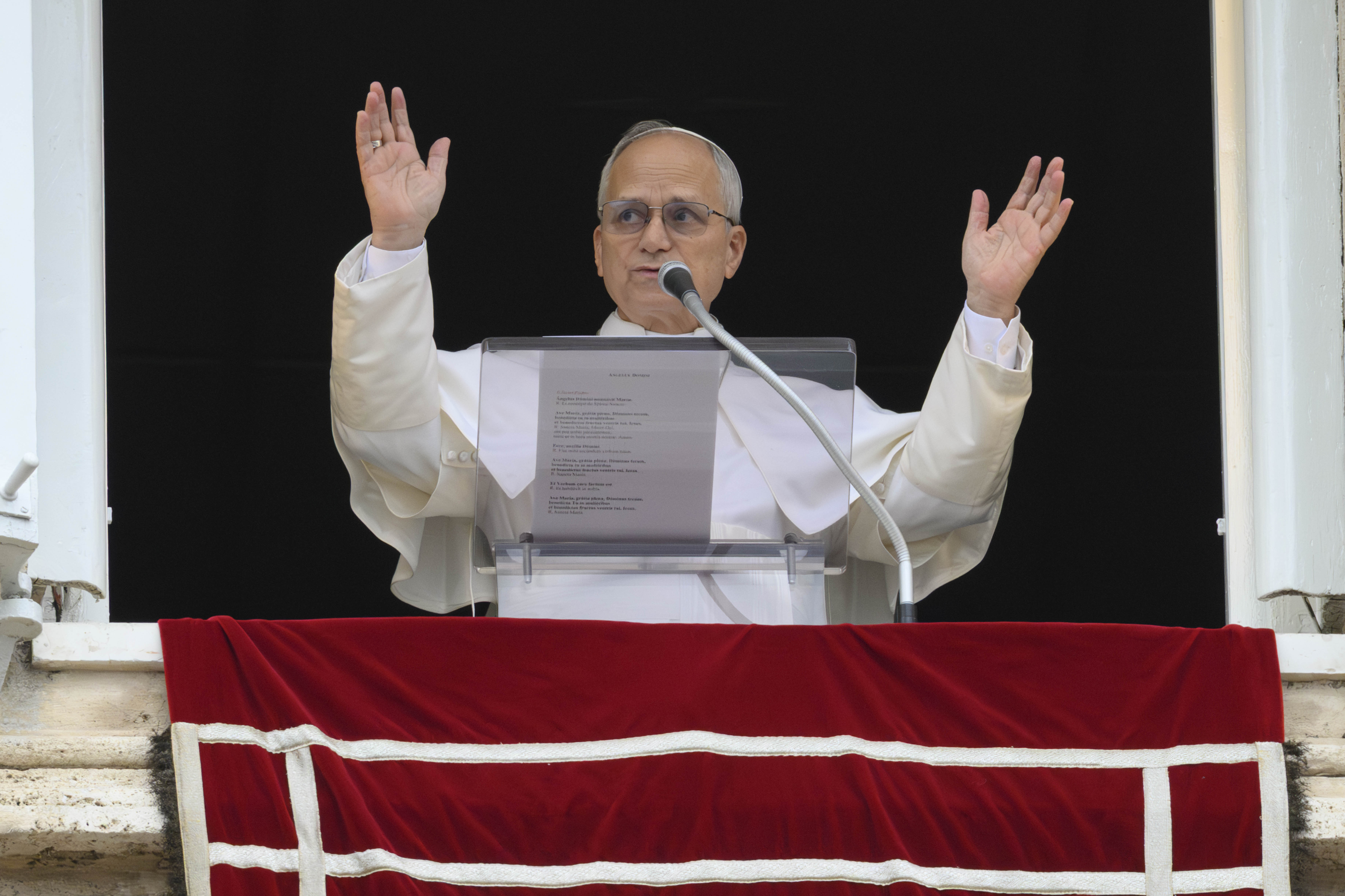Trump asks Supreme Court to rapidly take up tariff case
U.S. President Donald Trump on Wednesday asked the Supreme Court to quickly overturn a federal court decision striking down his administration’s wide-ranging global tariffs.
Attorneys with the Justice Department urged the justices to decide the case on a highly accelerated timeline, arguing that the legal challenges against the tariffs are creating uncertainty as the administration seeks to use them to resolve a variety of foreign policy issues, including to force India to stop purchasing Russian oil.
Solicitor General D. John Sauer asked the high court to accept the case by next week, hear arguments in early November and “expedite” its ultimate ruling “to the maximum extent feasible.”
“The stakes in this case could not be higher,” Sauer wrote. “The President and his Cabinet officials have determined that the tariffs are promoting peace and unprecedented economic prosperity, and that the denial of tariff authority would expose our nation to trade retaliation without effective defenses and thrust America back to the brink of economic catastrophe.”
The U.S. Court of Appeals for the Federal Circuit declared the tariffs illegal in a 7-4 decision last Friday, but that court put its ruling on hold to give the Supreme Court a chance to weigh in. If the Federal Circuit’s ruling stands, it could undermine ongoing trade negotiations and possibly force the government to pay back billions in collected duties.
The Supreme Court is not obligated to hear the Trump administration’s appeal, but most observers expect it to do so. The case challenges the legality of a large swath of Trump’s tariffs, including double-digit duties on leading trading partners Canada, Mexico, the European Union and China. The president has used those duties to negotiate a preliminary trade agreement with the EU, among other trading partners and continues to negotiate with China.
Along with its petition asking the high court to take the case, the administration filed a motion to expedite the case, citing a need for “an urgent resolution.” The businesses challenging the tariffs have agreed to the proposed rapid schedule.
“The … Federal Circuit’s erroneous decision has disrupted highly impactful, sensitive, ongoing diplomatic trade negotiations, and cast a pall of legal uncertainty over the President’s efforts to protect our country by preventing an unprecedented economic and foreign-policy crisis,” the Justice Department’s motion says.
The expedited treatment the administration is seeking from the high court is unusual but not unprecedented. The justices are not currently scheduled to meet in person until Sept. 29, for their so-called long conference that precedes the opening of a new term. Oral arguments for October and November have already been set, although the justices are free to add new cases to those calendars or to impose a more extended schedule than the one Sauer proposed.
But Jeffery Schwab, the senior counsel and litigation director for the Liberty Justice Center, which is representing the five businesses that brought the case, indicated they, too, wanted the case resolved quickly.
“We are confident that our legal arguments against the so-called ‘Liberation Day’ tariffs will ultimately prevail.” Schwab said in an e-mailed statement. “These unlawful tariffs are inflicting serious harm on small businesses and jeopardizing their survival.”
Trump has spent several days criticizing the Federal Circuit’s ruling, which upheld a May decision by the U.S. Court of International Trade that Trump had overstepped his executive power when imposing “reciprocal” tariffs on nearly every country in the world.
Trump argued the court was partisan and said it would be a “disaster” for the country if the tariffs were struck down.
“If we don’t win that case, our country is going to suffer so greatly,” Trump told reporters in the Oval Office on Wednesday, adding that the White House would likely “have to unwind” the preliminary trade deals it struck this summer with the EU, Japan South Korea, and several other trading partners.
“I can’t imagine it happening,” the president said in the Oval Office on Tuesday. “On a legal basis, they have no legal basis whatsoever, but on a commonsense basis, it would destroy America.”
At issue is the president’s authority under the International Economic Emergency Powers Act, a 1977 law Trump used to impose a baseline tariff between 10 and 50 percent on goods from nearly every country in the world. He is the first president to use that law to impose tariffs.
The administration claims that a “large and persistent” federal trade deficit is a national emergency that justifies the tariffs. It has also declared fentanyl abuse a national emergency, providing the administration’s justification for imposing tariffs on Canada, China and Mexico in February.
Any ruling by the Supreme Court would not affect the existing 25 percent tariff on automobiles and auto parts and the 50 percent tariff on steel and aluminum — both of which have provoked consternation at home and abroad and concerns about rising costs.
Despite the urgency of the administration’s request, the Supreme Court is facing no particular deadline to act. By its terms, the appeals court ruling last week will not kick in until the high court rules on the merits of the case or turns down the petition the administration filed Wednesday.




















:quality(85):upscale()/2023/09/18/918/n/1922398/a1136b676508baddc752f5.20098216_.jpg)
:quality(85):upscale()/2025/10/09/670/n/1922283/00b944c868e7cf4f7b79b3.95741067_.jpg)
:quality(85):upscale()/2025/10/15/765/n/1922398/29c37a6e68efd84bb02f35.49541188_.jpg)
:quality(85):upscale()/2025/09/09/891/n/1922283/7222624268c08ccba1c9a3.01436482_.png)
















